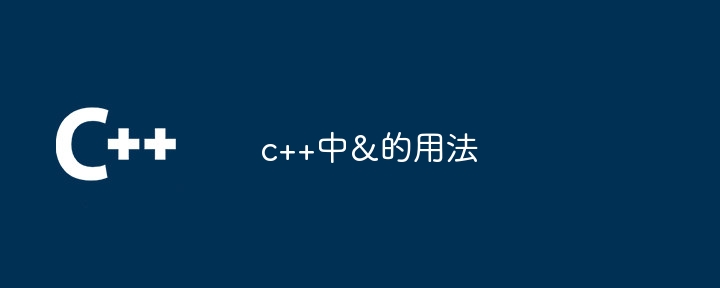
In C, the & operator is used to obtain a reference: obtain an lvalue reference (modifiable value): & variable or expression. Get an rvalue reference (only values can be read): & rvalue (temporary or expression result). Get function return type reference: & function name. Advantages of & operator: avoid copying and can modify the original value. Note: References need to be initialized, cannot point to null values, and have a consistent life cycle.

& Meaning of operator:
& Operator is used to get a reference. A reference is a data type that points directly to another variable rather than a copy of its value.
& Usage of operator:
& operator can be used in the following scenarios:
For example:
int a = 10; int& b = a; b++; // 等价于 a++
For example:
const int& c = 10; // c 是指向字面量 10 的右值引用
For example:
int& foo(); // foo 返回指向 int 类型的左值引用
& Advantages of operator:
& Notes on operators:
The above is the detailed content of Usage of & in c++. For more information, please follow other related articles on the PHP Chinese website!
 What are the differences between c++ and c language
What are the differences between c++ and c language
 Recommended learning order for c++ and python
Recommended learning order for c++ and python
 Cost-effectiveness analysis of learning python and c++
Cost-effectiveness analysis of learning python and c++
 Is c language the same as c++?
Is c language the same as c++?
 Which is better to learn first, c language or c++?
Which is better to learn first, c language or c++?
 The difference and connection between c language and c++
The difference and connection between c language and c++
 C++ software Chinese change tutorial
C++ software Chinese change tutorial
 Cost-effectiveness analysis of learning python, java and c++
Cost-effectiveness analysis of learning python, java and c++




